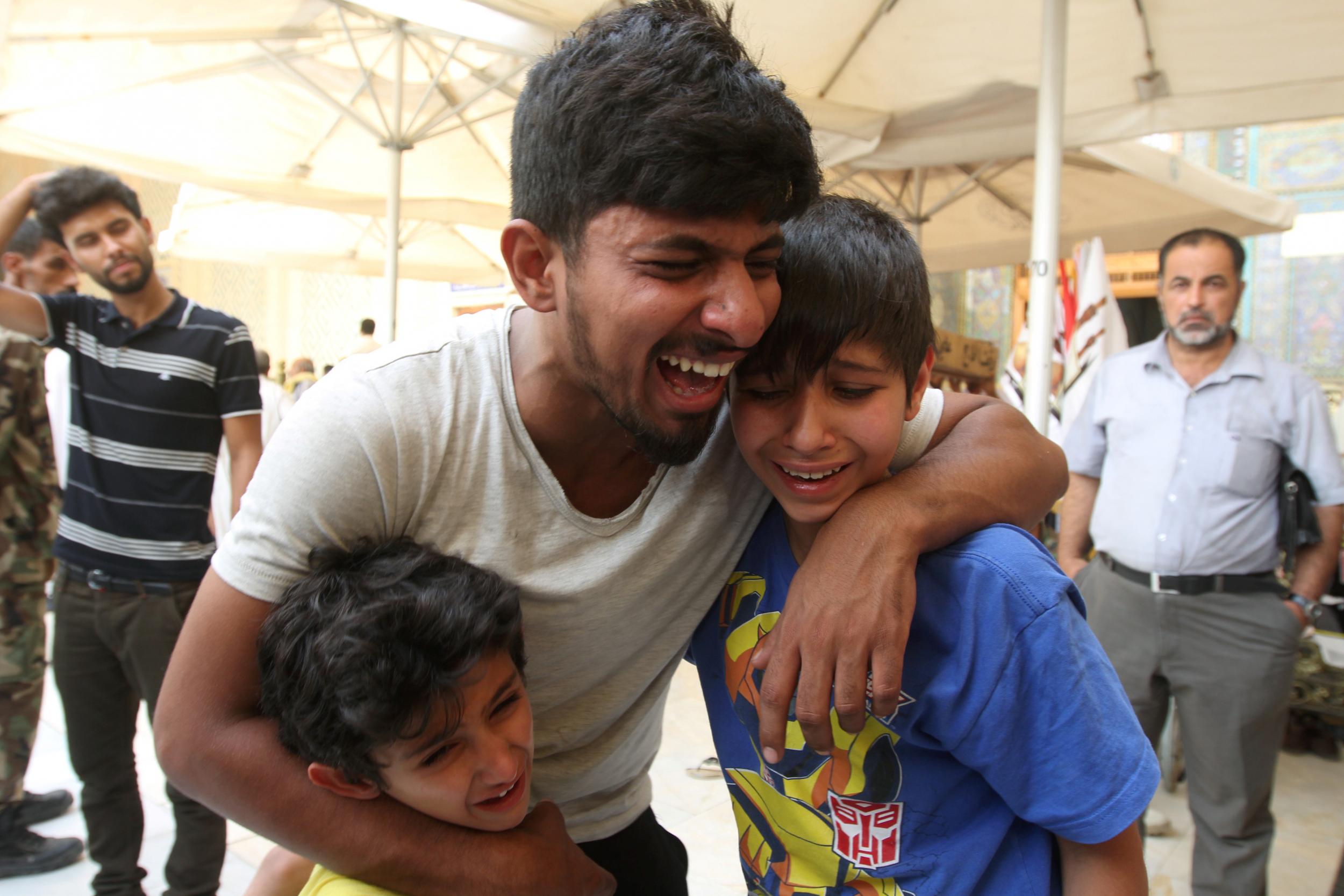Baghdad bombing: Isis's most deadly attack in weeks is the one the world probably cares about least
Car bombings in Baghdad conjure up no hashtags, no Facebook profile pictures with the Iraqi flag, and no Western newspaper front pages of victims' names and life stories

First, they came for Istanbul. On Tuesday night, three suspected Isis militants launched a brazen assault on Turkey's main airport, exploding their suicide vests after gunning down numerous passengers and airport staff.
At least 45 people were killed. The world panicked; Istanbul Ataturk Airport is one of the busiest hubs in Europe and the Middle East, and it is among the most fortified. Are our airports safe, wondered American TV anchors. Could this happen here on the Fourth of July?
Next, they came for Dhaka. Gunmen whom many have linked to Isis raided a popular cafe in an upscale neighborhood in Bangladesh's teeming capital.
After a 10-hour stand-off, authorities stormed the establishment; at least 20 hostages, mostly Italian and Japanese nationals, died at the militants' hands. US college students also were among the dead. Isis's reach is growing far from the Middle East, security experts fretted. Foreigners are at risk all over the Muslim world.
Then, they attacked Baghdad. In the early hours of Sunday morning, as hundreds of Iraqis gathered during the holy month of Ramadan, a car bomb exploded in the crowded Karrada shopping district.
The blast killed a staggering number of people — the latest death toll is at least 121 — including many children. The area is predominantly Shia, making it a choice target for the Sunni extremist group.
It's unlikely that this attack, just the latest in an unending stream of tragedy to envelop the Iraqi capital, will generate the same panic in the West as the earlier two incidents.
For years now, we have become almost numb to the violence in Baghdad: Deadly car bombings there conjure up no hashtags, no Facebook profile pictures with the Iraqi flag, and no Western newspaper front pages of the victims' names and life stories, and they attract only muted global sympathy.
The BBC has a timeline of the recent attacks linked to the Isis in the city and elsewhere in Iraq, including a hideous week of bombings in Baghdad in mid-May:
9 June 2016: At least 30 people killed in and around Baghdad in two suicide attacks claimed by IS
17 May 2016: Four bomb blasts kill 69 people in Baghdad; three of the targets were Shia areas
11 May 2016: Car bombs in Baghdad kill 93 people, including 64 in market in Shia district of Sadr City
1 May 2016: Two car bombs kill at least 33 people in southern city of Samawa
26 March 2016: Suicide attack targets football match in central city of Iskandariya, killing at least 32
6 March 2016: Fuel tanker blown up at checkpoint near central city of Hilla, killing 47
28 February 2016: Twin suicide bomb attacks hit market in Sadr City, killing 70
And all of this is only from this year. Since the 2003 US-led invasion of Iraq, and the bungled occupation that followed, Baghdad has been the site of numerous rounds of sectarian blood-letting, al-Qaeda attacks and now the ravages of Isis.
Despite suffering significant defeats at the hands of the Iraqi army, including the loss of the city of Fallujah, the militant group has shown its willingness and capacity to brutalise the country's population.
Public anger in the Iraqi capital, as my colleague Loveday Morris reports, is not being directed at foreign conspirators or even — first and foremost — at the militants, but at a much-maligned government that is failing to keep the country safe.
"The street was full of life last night," one Karrada resident told The Washington Post, "and now the smell of death is all over the place."
Copyright Washington Post
Join our commenting forum
Join thought-provoking conversations, follow other Independent readers and see their replies
0Comments